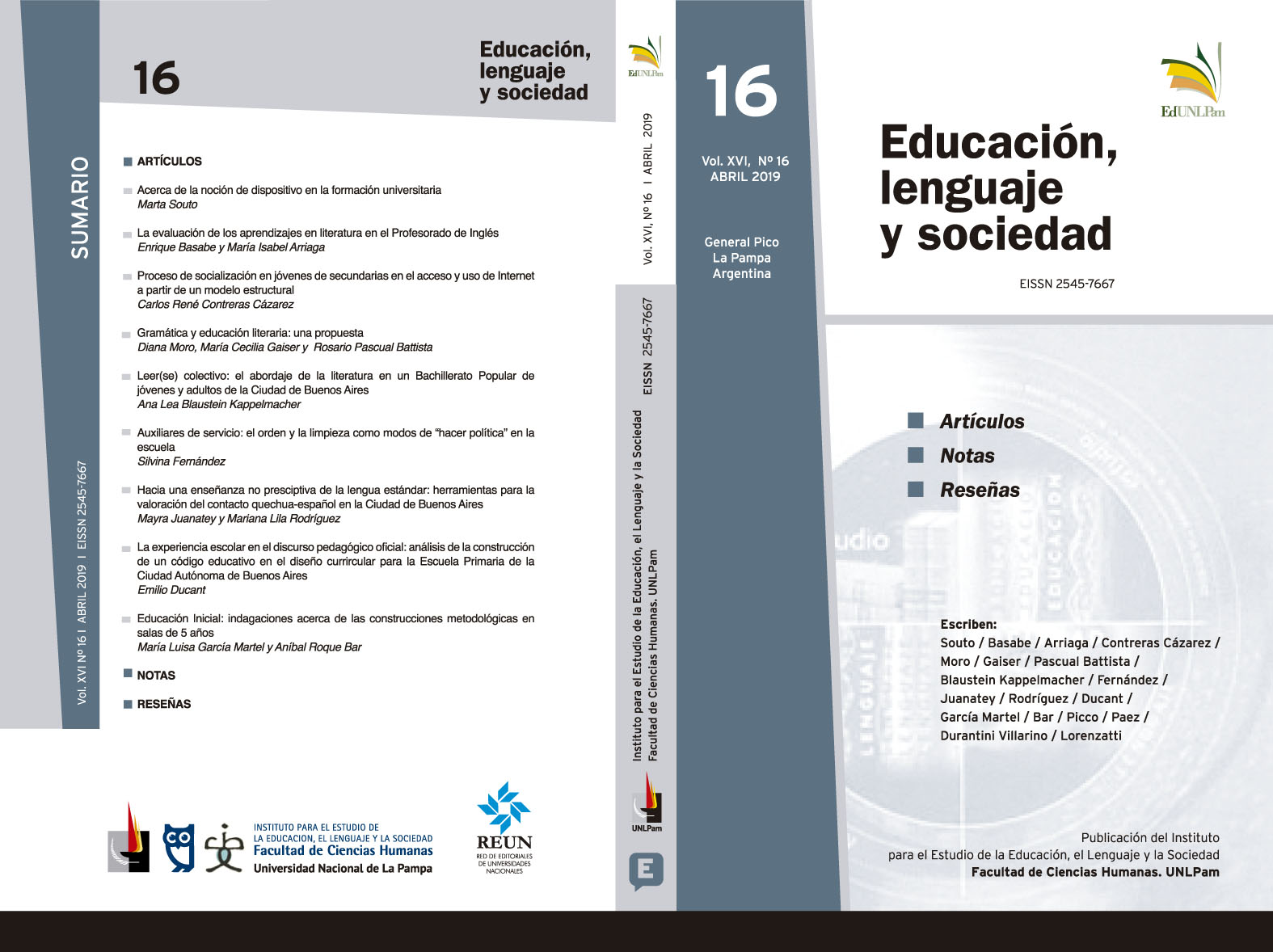Socialization process in high school young people on Internet access and use on a structural model
DOI:
https://doi.org/10.19137/els-2019-161604Keywords:
socialization, young people, Internet, digital skills, structural model, access, useAbstract
The process of socialization has been one of the main objects of study in the social sciences. Since the 21st century, studies on Internet access and use have proliferated in intermediate childhood, as well as in adolescence. Most of these contributions describe and analyze in a useful way the habits of consumption and preferences of use from different conceptual and methodological approaches. The purpose of this article is to analyze and evaluate the validity and reliability of a structural model for the study of Internet access and use among young people in Mexico. The study is derived from a larger research project conducted in Hermosillo, Sonora, Mexico in Public Secondary Education Institutions. The sample consists of 198 students. The analysis of multiple regressions suggested the conformation of two or more variables that influence the access and use of the Internet in the socialization processes by secondary school students. The results of the reliability tests of the instrument were more than acceptable when showing alphas of Cronbach with a value> .60, allowing to verify the reliability of the variables under study and to measure their internal consistency. The results indicate that the socialization factor has a significant influence on the access and use factor, making it clear that young people, when they access and use the Internet, do so primarily for interaction and socialization purposesDownloads
Download data is not yet available.
Downloads
Published
2019-05-28
Issue
Section
Artículos










21.png)







